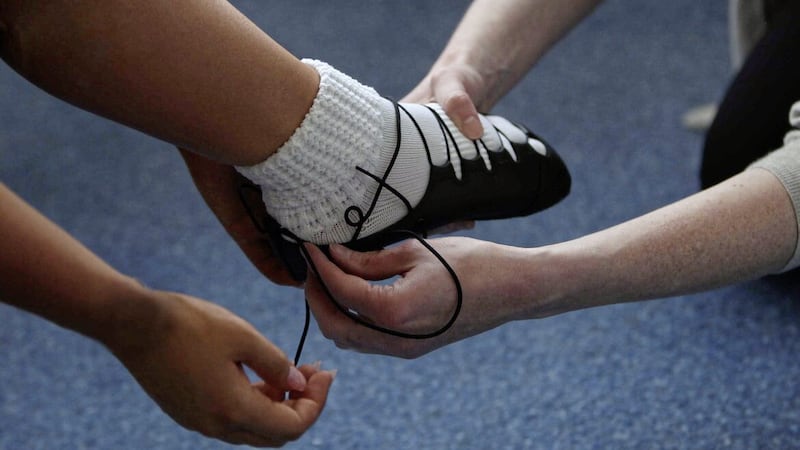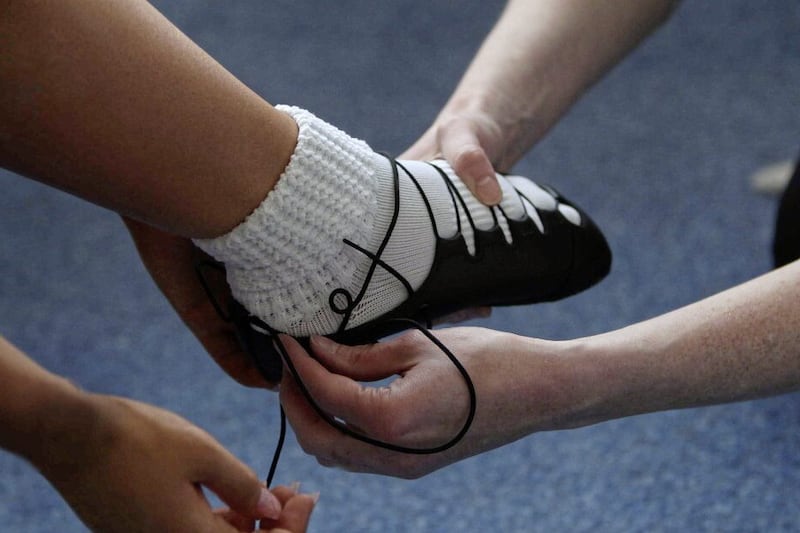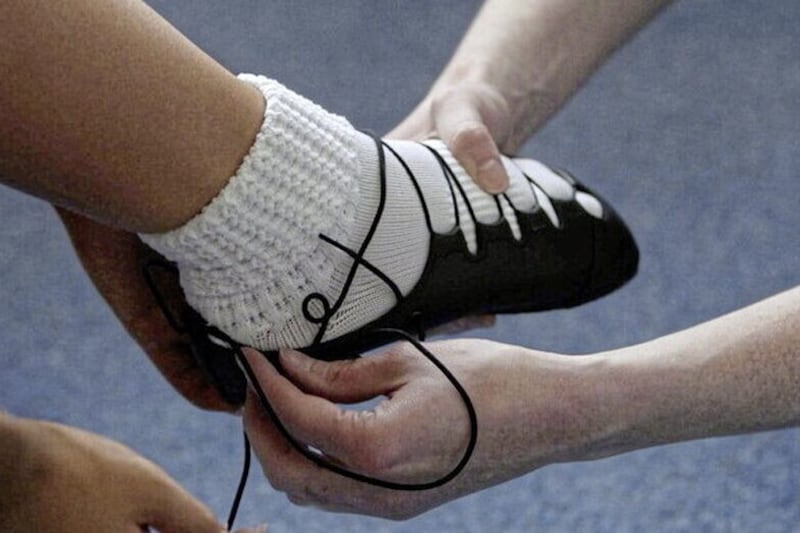AN investigation into allegations of Irish dance competition-fixing centres on screen shots of messages shared with at least 18 individuals, including several in Northern Ireland.
An Coimisiun Le Rinci Gaelacha (CLRG), The Irish Dancing Commission, has launched an investigation into allegations of attempts to fix events hosted by the organisation.
CLRG has asked a former Irish Court of Appeal judge to probe allegations of “several grievous breaches” of the commission’s code of conduct.
Teachers, parents and competitors have for years questioned some results of competitions, according to multiple sources. Winning dancers can add to the prestige of schools.
The cost of Irish dancing training and competing has risen considerably over the last two decades, particularly for young girls. Dresses can cost several thousand pounds, on top of travel and teaching fees.
Irish dance teachers deeply concerned over suspected competition-fixing dating back years set up their own support group last month.
The teachers, many of them operating along the border, set up as a group as they feared making complaints as individuals. A first meeting was held in south Armagh.
They are angered at what they believe is a culture of “back scratching” among an element linked to CLRG, which has more than 2,000 affiliated teachers in Ireland, Britain, the US and various others parts of the world.
They are also concerned about what is described as a “beauty pageant” element of competitions organised by the CLRG. Many of the young girls competing wear wigs and use fake tan along with elaborate clothing.
There are also questions over why it took until now to announce an investigation if the organisation received credible information back in July.
They wanted to organise as a group amid concerns they or their students may be treated “improperly” in future competitions.
Those concerns over the expense of competing, along with claims some dancers were not being treated fairly, drove former CLRG teachers and those from other organisations to establish the World Irish Dance Association in 2004, said member Fraser Fallon.
The break stems from the late 1990s when the wearing of wigs, fake tan and expensive costumes began “creeping into Irish dancing”, said Mr Fallon, a former champion dancer who now runs the Fallon Academy in Edinburgh.
He added that it was always suspected “favours” were happening and that people are “not surprised” by the revelations.
The WIDA, one of a number of Irish dancing organisations not linked to CLRG, wants to “promote cost effective, traditional dance” where the young people, and their parents, do not need to spend huge amounts of money on dresses and accessories.
“It is about the dancing. It should not be about a wig or dress or shoes,” Mr Fallon said.
The Irish Dancing Commission is the umbrella organisation for dozens of feiseanna every year, from local events to international competitions.
The All Scotland Championships is currently taking place at Glasgow Royal Concert Hall. Belfast hosted the world championships in April, attended by approximately 3,500 dancers along with their families.
On the allegations, the CLRG said in a statement to members: "The evidence apparently dates back several years and identifies individuals allegedly offering various inducements to promote dancers to a higher than deserved placing at particular competitions.
"It is believed that there are a number of teachers and schools implicated in the allegations."
The organisation added: "Due to the potential extent of such allegations - and to ensure fairness, transparency and thoroughness - the services of an independent former judge of the Court of Appeal have been engaged to oversee and supervise the immediate investigation into these matters. They will have full and open access to the resources and records of CLRG.
"The process will no doubt be difficult and arduous, but this grossly unethical behaviour must be eliminated from our competitions, dance schools and governing organisations."
Irish Justice Minister Helen McEntee said people need to have confidence in the CLRG and she awaited any report.
“I think people need to have confidence in any type of events or competitions or organisations, be it children or younger people or older people that are involved,” said Ms McEntee.







